Are bio-responsive offices the next step forward in workplace design? Two proposals by Carlo Ratti Associati and UNStudio suggest our workspaces could and should evolve in such a direction.
April 4th, 2018
Advancements in the technology fast outpace the progress of our buildings and designed environments. This has led to an increasing need for future-proofed infrastructure. In the field of workplace design, this has created ‘the agile workplace’, which is characterised by reconfigurable spaces.
An emerging interest in intelligent, bio-responsive environments that are not only supportive of a change culture, but attuned to real-time individual needs and personal preferences, is now expanding the idea of ‘workspace agility’ with new possibilities.
At the Agnelli Foundation in Turin, an Internet-of-Things-equipped coworking office designed by Carlo Ratti Associati (CRA) is enabling users to create personal ‘environment bubbles’. Office 3.0’s heating, cooling and lighting can be keyed to individual preferences (inputted through personal mobile devices), creating an ambient bubble for each worker that then ‘follows’ them around the building. Each bubble corresponds to a workstation, occupying just a few square meters.

The Agnelli Foundation headquarters, designed by Carlo Ratti Associati has a personalised heating, cooling and lighting system, which follows occupants as they move around the building, like an individually-tailored environmental bubble.
Says Carlo Ratti, Founding Partner of CRA and Director of the MIT Senseable City Lab, “Thanks to coworking and more responsive architecture, we can decrease the number of square meters per person – creating a more efficient use of space and a more sociable environment.
“Aggregated data can serve as a testbed for research on the relationship between office design and productivity. In the near future, by analysing statistics on the building’s use, it will be possible to better understand how people behave in a particular space and how this, in turn, can affect well-being and creativity.”
Ratti’s vision for such organic, adaptive architecture shares many parallels with UNStudio’s research in what they call ‘human aware architecture’. Underpinning UNStudio’s research (titled ‘Towards Human Aware Architecture: Environment Assisted Learning and Working’) is the belief that the comfort and well-being of an individual correlate to both the creativity and productivity of staff and the general efficiencies of a work culture.
UNStudio posits that the homogeneously designed workplaces of today are inadequate in meeting the divergent needs of staff or community, as such individuals are offered little latitude in adjusting their personal spaces.
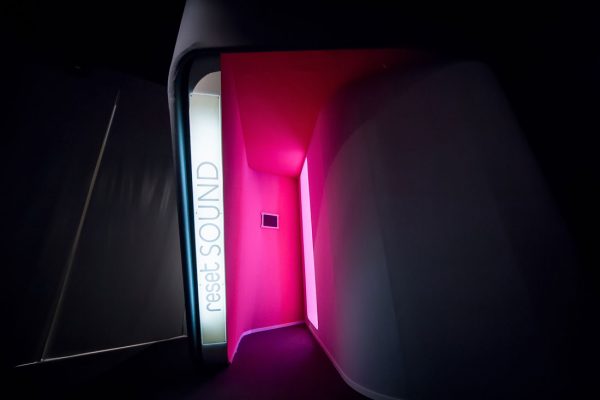
UNStudio proposes that an intelligent, self-learning environment that responds specifically to an individual’s mental and physical state through bio-responsive systems could be introduced to our workplaces.
The proposal is for an EALW or ‘Environment Assisted Learning and Working’ system that would comprise elements such as walls, windows, chairs, desks and even drinking glasses.
In conjunction with Dutch social design company Scape, UNStudio presented a prototype for an EWAL environment in 2017 in the form of RESET (Responsive Emotional Transformation) – a series of immersive modular pods offering scientifically proven stress-reduction methods.
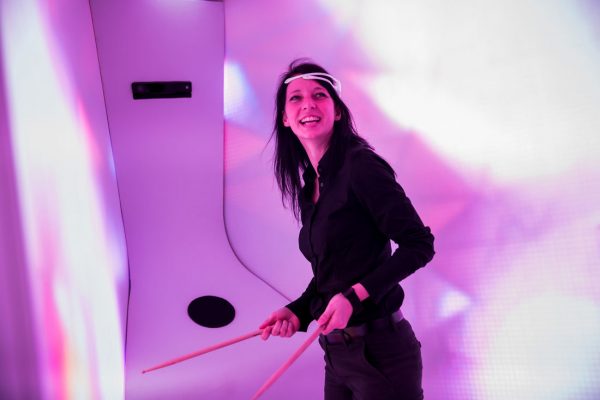
This excerpt is taken from our Singapore publication CUBES, issue #90. Want to see other experiments in digital? UNStudio also uses digital fabrication to great effect.
INDESIGN is on instagram
Follow @indesignlive
A searchable and comprehensive guide for specifying leading products and their suppliers
Keep up to date with the latest and greatest from our industry BFF's!
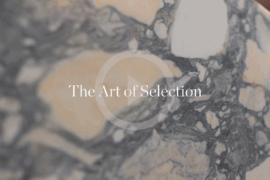
CDK Stone’s Natasha Stengos takes us through its Alexandria Selection Centre, where stone choice becomes a sensory experience – from curated spaces, crafted details and a colour-organised selection floor.
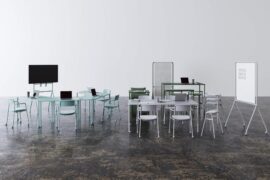
Welcomed to the Australian design scene in 2024, Kokuyo is set to redefine collaboration, bringing its unique blend of colour and function to individuals and corporations, designed to be used Any Way!
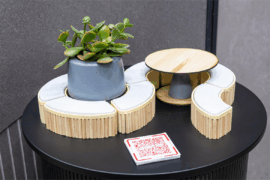
From the spark of an idea on the page to the launch of new pieces in a showroom is a journey every aspiring industrial and furnishing designer imagines making.

London-based design duo Raw Edges have joined forces with Established & Sons and Tongue & Groove to introduce Wall to Wall – a hand-stained, “living collection” that transforms parquet flooring into a canvas of colour, pattern, and possibility.
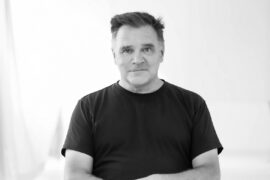
In this comment piece, COX Principal David Holm reflects on Carlo Ratti’s curatorship in which climate, colonisation and gender equity took centre stage at the Venice Biennale.

Australian curator, writer and educator Kate Goodwin has been in attendance at the 2025 Venice Architecture Biennale and reports back on some of the highlights.

UNStudio, in collaboration with Chinese information and communications technology firm, Huawei, has unveiled the design for a new flagship store in Shanghai.

“My worry is that when we talk about ESG, we’re often referring to the need to better care for the planet, for outdoor environments. But what about the indoors?” In this exclusive Q&A with UNStudio’s Ben van Berkel, he puts a new lens on ESG, and talks about designing STH BNK By Beulah with Cox.
The internet never sleeps! Here's the stuff you might have missed
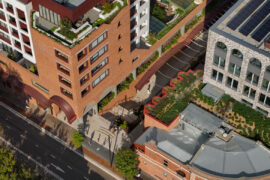
Seven years in the making, the new Surry Hills Village is here with doors open and crowds gathering.
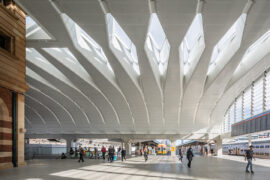
The Australian Institute of Architects has unveiled 43 projects representing the pinnacle of contemporary design, with winners addressing housing, climate and affordability crises through innovative solutions.